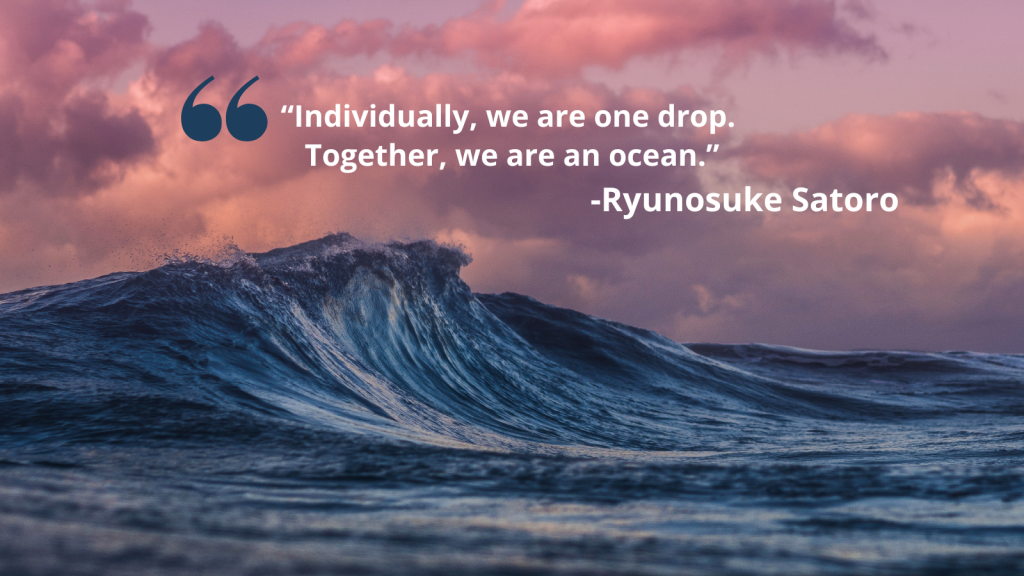Introduction

In order to create a ripple effect when creating an OER, we must identify and clearly articulate its purpose. The human aspect of OER – the humans that create and use OER – is the most important part of OER – while the desired outcome of a completed resource is great, the collaboration journey is just as important. Collaboration and intentionally centering students are two important themes that you’ll find embedded throughout this guide, and open education more broadly. The purpose of creating an OER is two-fold: collaboration and centering student learning.
Often when we think of creating OER, our minds immediately go into project management mode with the end goal of producing a resource. What if we paused and reframed our desired outcomes? Rather than just reaching an end goal of a final OER, what if we stopped to remind ourselves that the relationships built and strengthened throughout the publishing process is in itself a goal. As you will see, how an OER is made can have a noticeable impact on the final product. Making (and reading) an OER is a collective effort.
Our experience of having delivered the Textbook Success Program (TSP) multiple times shows us the direct relationship between the experiences of collaborating on OER projects and the different successful outcomes of learning: the changes in skills, strategies, relations, attitudes, etc.. We acknowledge that collaboration takes time. But who says it’s less efficient in the long run? Of course, in the short-term, meetings take time and OER projects are often running on a quick timeline. We think shared ideas, feelings of being respected and being on the same wavelength, are a good investment for the future because they will enable everybody’s growth and connection on multiple levels, including institutional capacity and greater contributions to society. Completing a project with a smaller scope and thoughtful approaches may pave the way for bigger and better work in the future.
Collaboration is tied very much to the idea of telling representative stories. For you to create an equitable OER, it is important to bring in different perspectives into your work and let this diversity help your OER improve. “The whole purpose of education is to turn mirrors into windows.”
Journalist Sydney J. Harris (1917-1986) famously said that “the whole purpose of education is to turn mirrors into windows.” I believe what he meant by this is that mirrors reflect ourselves – our own principles, norms, values, and worldviews – in the same way a mirror can reflect our ignorance and fears. Windows, however, can bring to light dark sides and show us a world we don’t know – in the same way education seeks to remove ignorances and fears, teaching us more about ourselves and each other. How we look at the world depends on our lived experiences, values, and worldviews. OER provides educators with ample opportunities to challenge the status quo and create new paths forward.
Pause & Reflect on your Positionality and Values
- What does DEI in OER mean to you as an educator? What does it mean to you as an individual? What does it mean to your institution?
- How do your own background, values, and perspectives influence who you are and who you want to be as an educator?
- What values and perspectives inform your own OER work?
Resources:
Satoro, R. (n.d.). A quote by Ryunosuke Satoro. Goodreads. Retrieved October 17, 2022, from https://www.goodreads.com/quotes/479992-individually-we-are-one-drop-together-we-are-an-ocean
Media Attributions
- Purpose of OER Creation © Silas Baisch adapted by Kaitlin Schilling is licensed under a CC BY (Attribution) license

